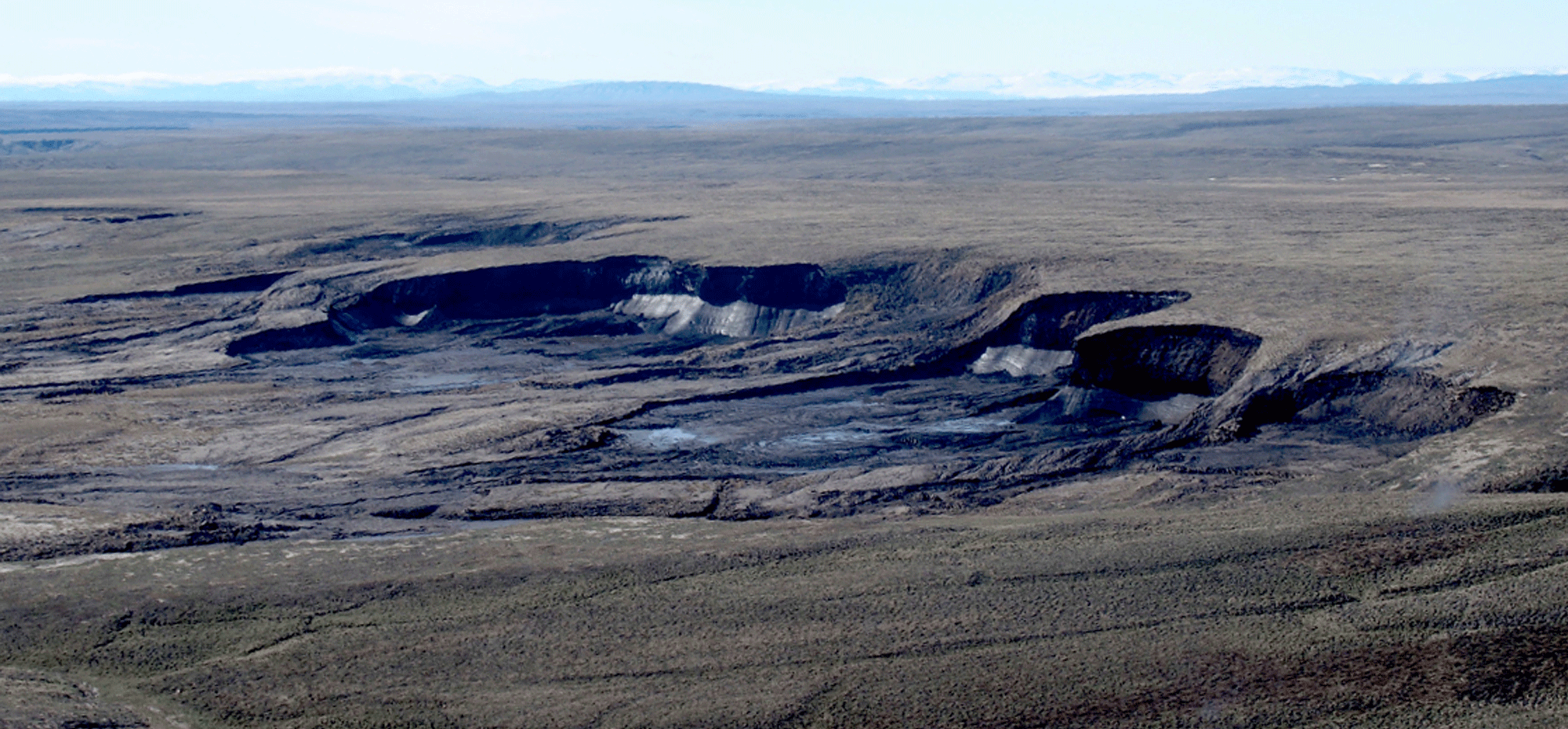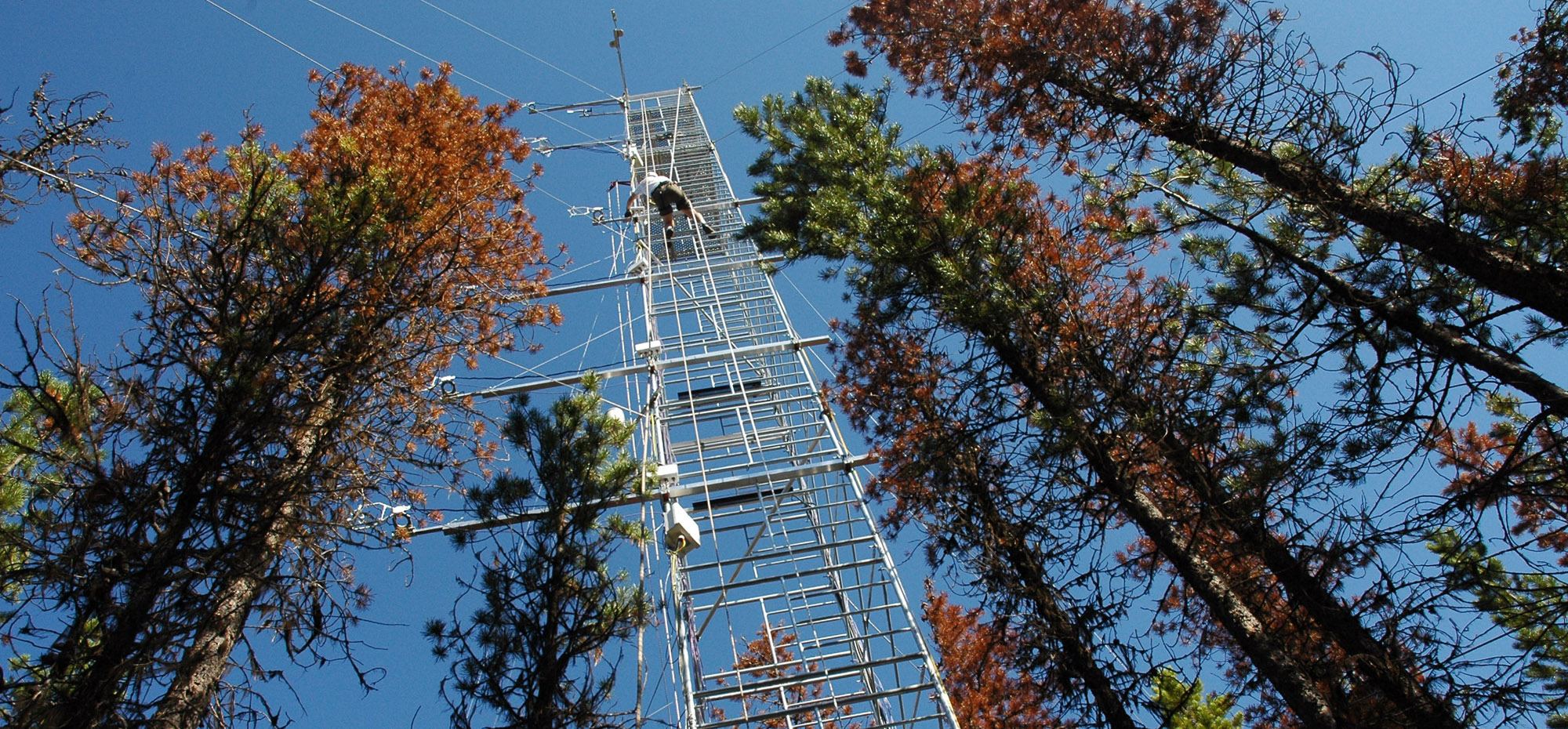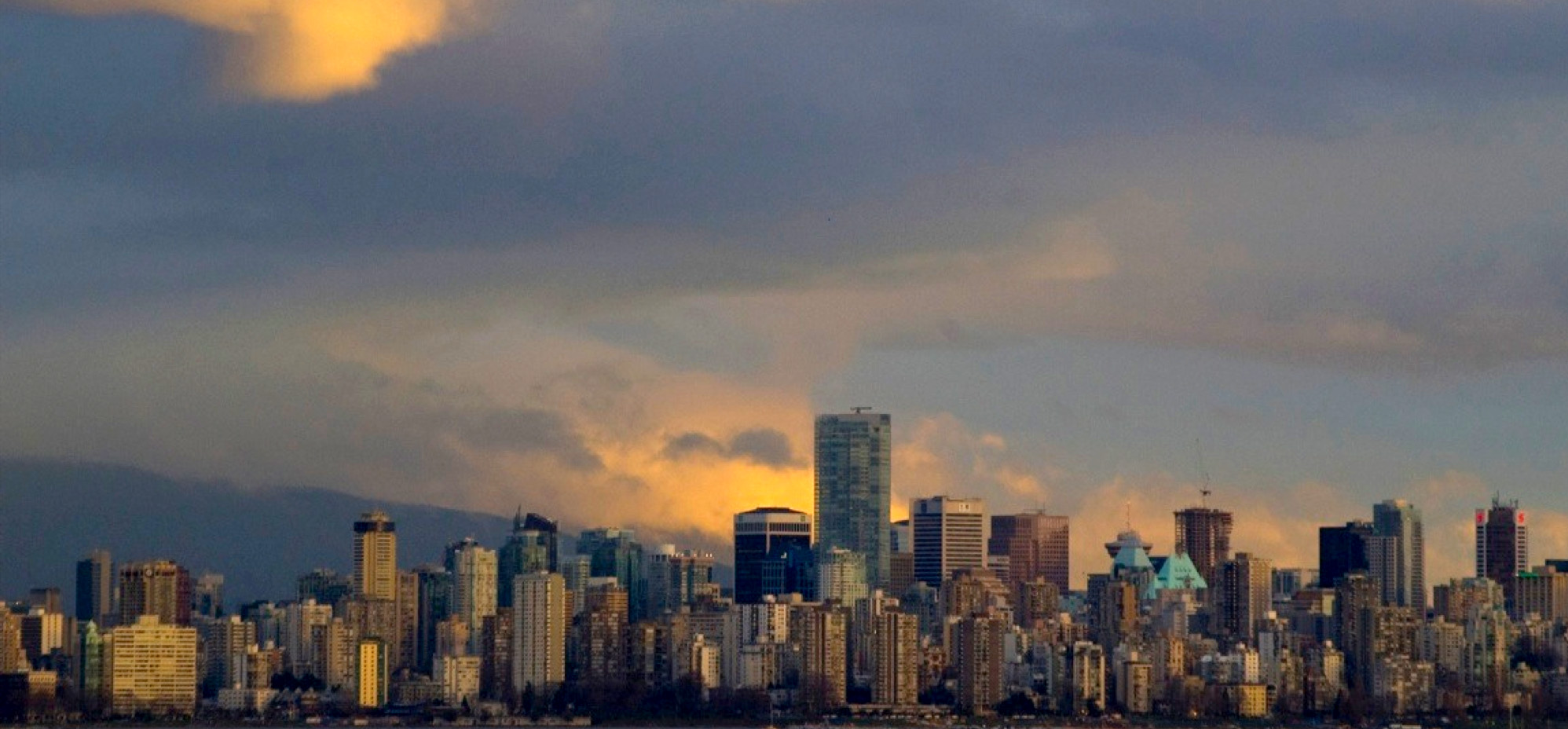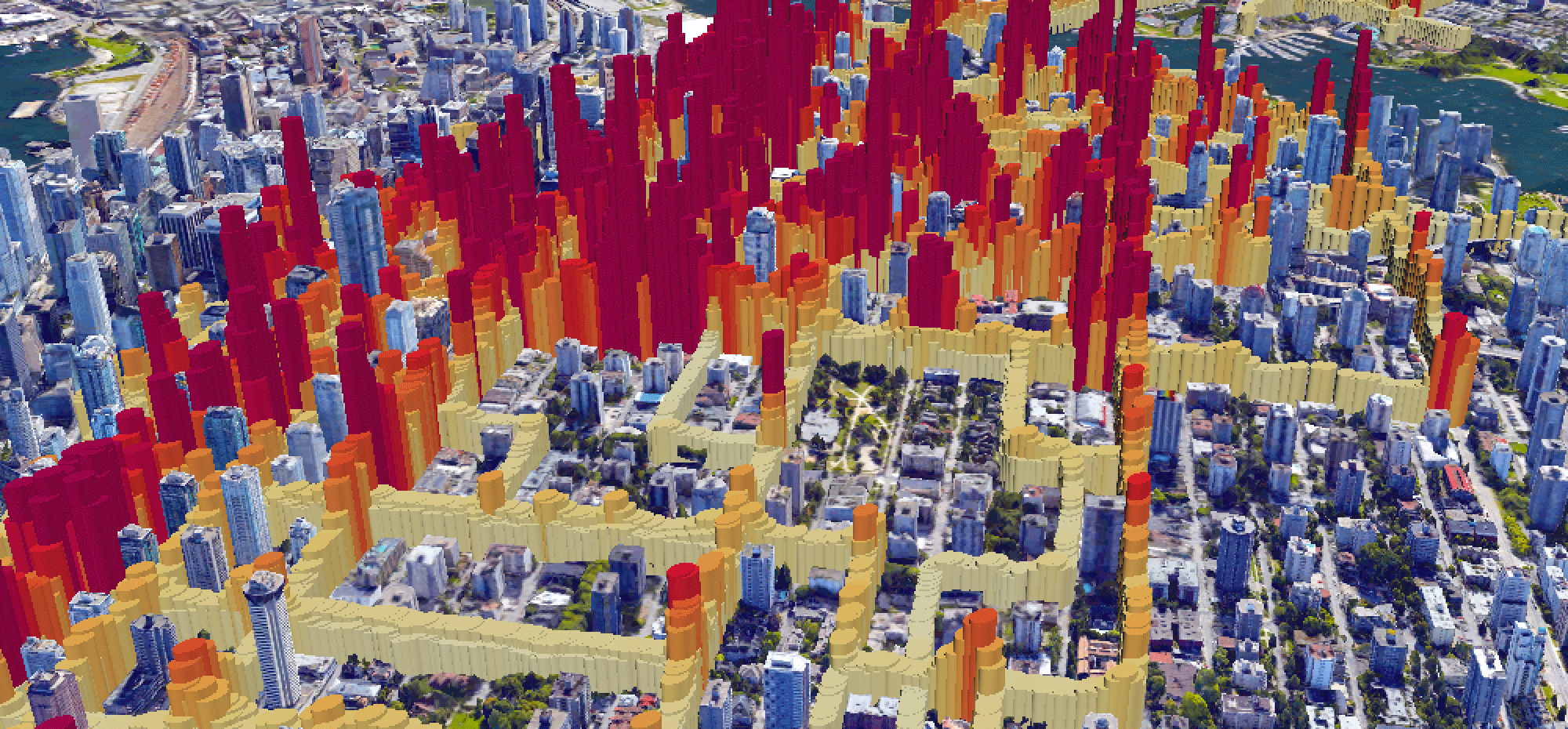UBC's Laboratory for Atmospheric Research on Greenhouse Gas Exchange - funded by the Canada Foundation for Innovation and BCKDF through a CFI Infrastructure Fund 2015 - supports climate research on greenhouse gas emissions and sequestration in Canada's forested, tundra and urban landscapes. The laboratory shares analytical technology, sensors, collaborative field platforms, and data management systems to study how much, when and where atmospheric greenhouse gases are emitted and sequestered across Canada's major ecozones.
Research Mission
The Laboratory for Atmospheric Research on Greenhouse Gas Exchange enables UBC researchers in the Faculty of Arts (Geography), Land and Food Systems, and Applied Science to support prediction and projection of greenhouse gas exchange between land and atmosphere under future climates, future disturbances, and future feedbacks, and consequently guide management options. We study how emissions and uptake of greenhouse gases respond to various disturbances (climate change, local land cover changes, insect attacks, management), and what is the effect of land-management choices. The laboratory supports three particular approaches to study greenhouse gase exchange:
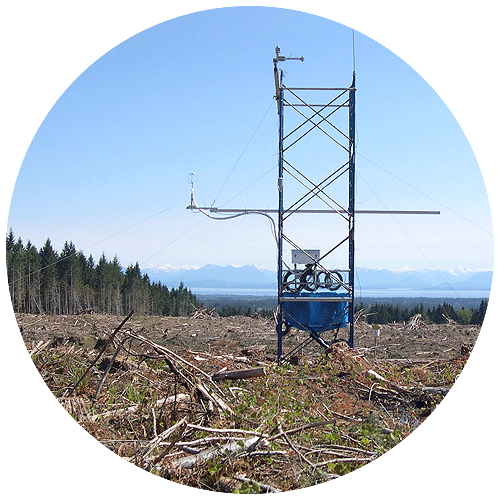 | We perform tower-based flux measurements that allow us to understand and predict ecosystem-climate feedbacks, quantify the impact of land disturbances and determine carbon sequestration rates. We use our research findings to validate and inform emission inventories and guide sustainable management of resources such as timber. |
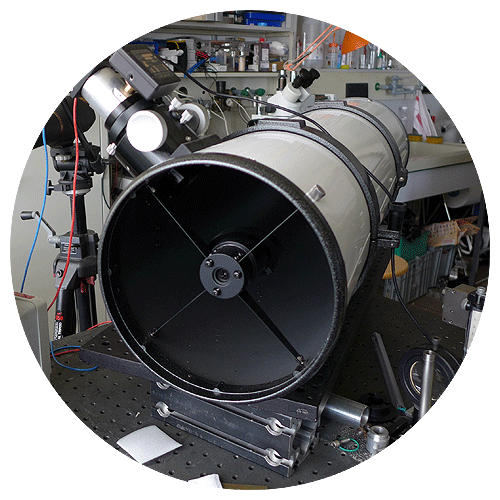 | We develop new sensors and measurement technology to scale greenhouse gas exchange from plot to urban and regional scales. Our developments include remote-sensing systems based on tunable diode laser technology for path-averaged measurements of greenhouse gases. A mobile network of lightweight sensors opens up new pathways for flux estimates in complex configurations such as cities. |
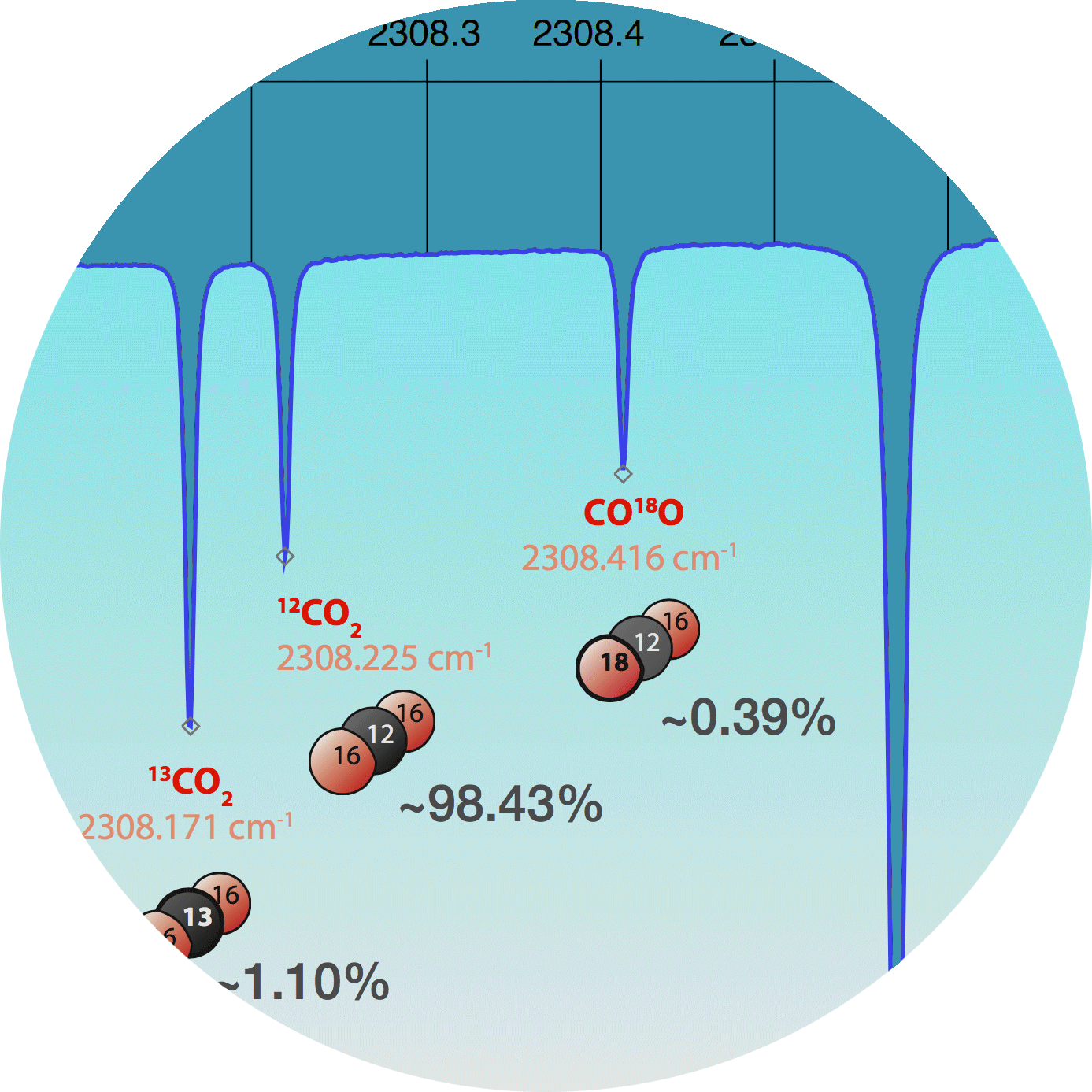 | We use stable isotope approaches to attribute greenhouse gases to emission sources at regional-, urban- and plot-scales. This assists estimates of emission factors and fluxes related to land cover changes in disturbed, and/or human-dominated landscapes. |
Research Services
The central analytical laboratory located in Ponderosa Commons at UBC consolidates existing and new gas analyzers to provide the following central research services: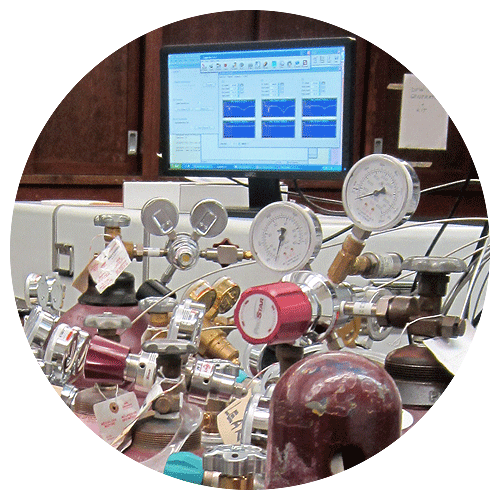 | Quality assurance - calibration of analyzers across all lab and field measurements - traceable back to international WMO standards. |
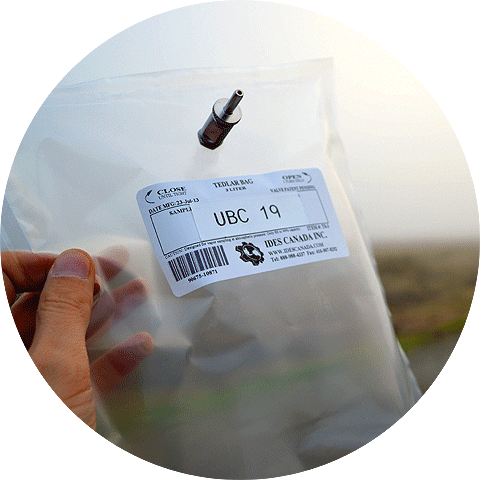 | Sample analysis to determine carbon dioxide, methane, and nitrous oxide mixing ratios and isotopic composition at highest precision in lab samples and through mobile in-situ analyzers. |
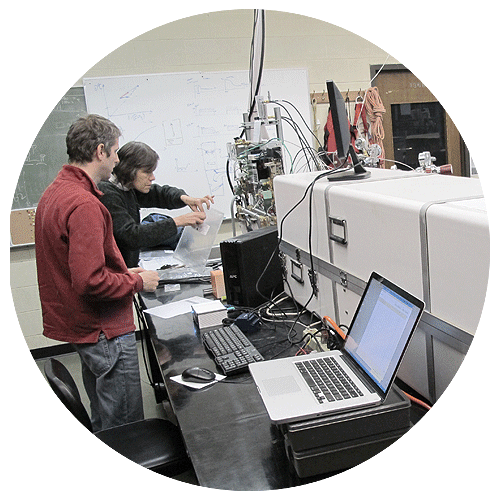 | Design, development and testing of new instruments / platforms, data analysis and visualization systems. |
Field Sites
The laboratory supports research in major ecozones and land-uses of Western and Northern Canada using five long-term experimental research sites: The research theme at UBC’s High Arctic site on Ellesmere Island is to quantify the effects of permafrost slides on landscape-scale GHG exchange and study climate feedbacks such as accelerated permafrost thawing in one of the most rapidly changing environments in Canada. The Mackenzie Delta, where UBC’s Low Arctic site is located, is the area which has been identified as a substantial source of the GHG methane due to extensive wetlands and thermokarst. We quantify landscape-scale methane emissions and overcome the sampling challenges of point measurements due to the fine-scale heterogeneity. The Montane Forest site is a research site where UBC researchers study the effect of large-scale insect attacks on regional GHG exchange between forests and atmosphere in BC's interior. Research at UBC's Coastal Forest site focuses on the mechanisms of carbon sequestration in Canada’s most productive forest ecozone, and determining the effect of forest management practices and harvesting on sequestration and emissions. The research at UBC’s Urban Site located in the City of Vancouver is on the development of new methods to directly measure urban GHG emissions, and determine urban-scale GHG emission factors on an existing 30-m research tower and by using vehicle-based mobile sensors and samplers. | 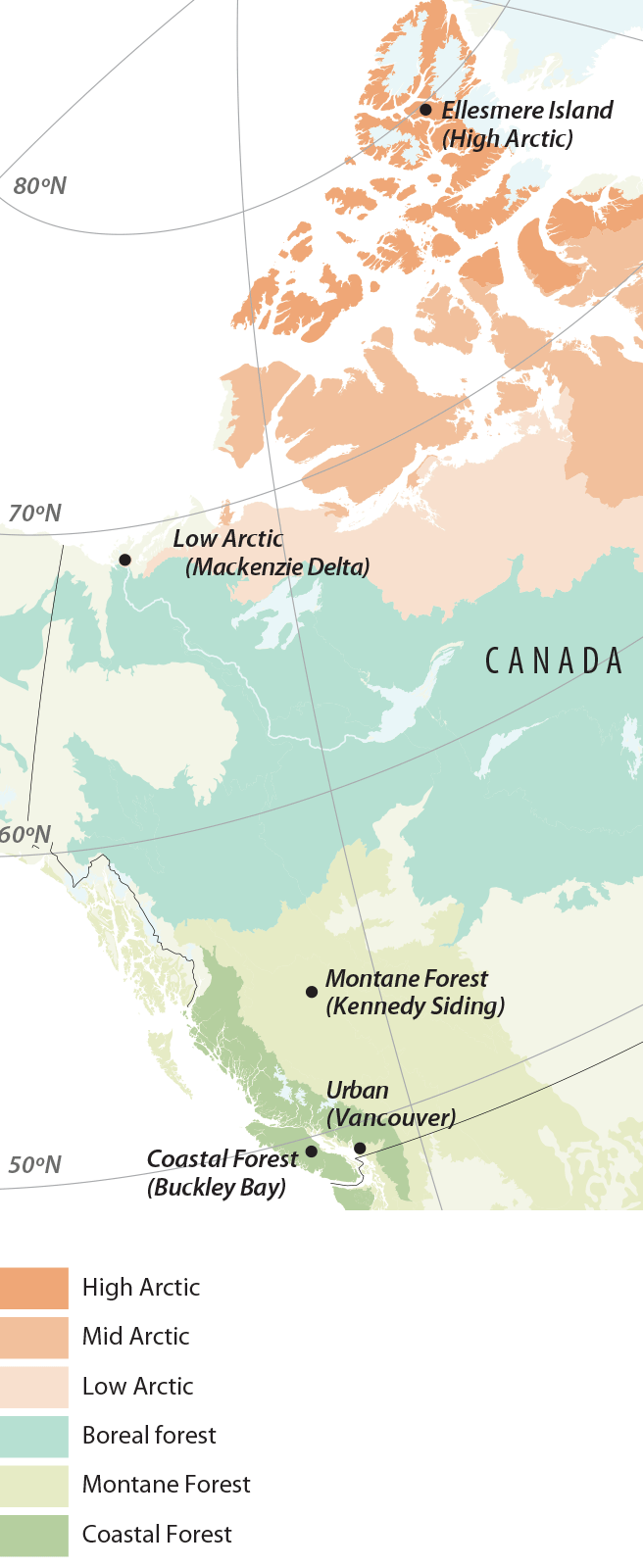 |
Team
The Laboratory for Atmospheric Research on Greenhouse Gas Exchange is hosted in the Department of Geography's Ponderosa Lab Space in collaboration with Civil Engineering and the Faculty of Land and Food Systems. The following research groups are directly involved in the Laboratory for Atmospheric Research on Greenhouse Gas Exchange:
- Andreas Christen's Micrometeorology Group (Department of Geography, Faculty of Arts) develops methods to measure emissions of greenhouse gases over urban and disturbed landscapes.
- Andrew Black's Biometeorology and Soil Physics Group (Faculty of Land and Food Systems) has 20 years of expertise to operate, calibrate and maintain flux towers to study greenhouse gas exchange between forest ecosystems and the atmosphere.
- Greg Henry's Arctic Biogeography Group (Department of Geography, Faculty of Arts) works on the responses of Arctic tundra to environmental changes, especially climate variability and change and associated greenhouse gas feedbacks
- Marc Parlange's research group in environmental fluid mechanics (Civil Engineering, Faculty of Applied Sciences) are leading in the measurement and simulation of atmospheric flows in complex terrain. They also work on environmental applications of laser techniques to measure greenhouse gases.
Funding
UBC's Laboratory for Atmospheric Research on Greenhouse Gas Exchange is funded by the Canada Foundation for Innovation, by the British Columbia's Knowledge and Development Fund (BCKDF) and by UBC through a CFI Infrastructure Grant 2015.![]()
![]()
